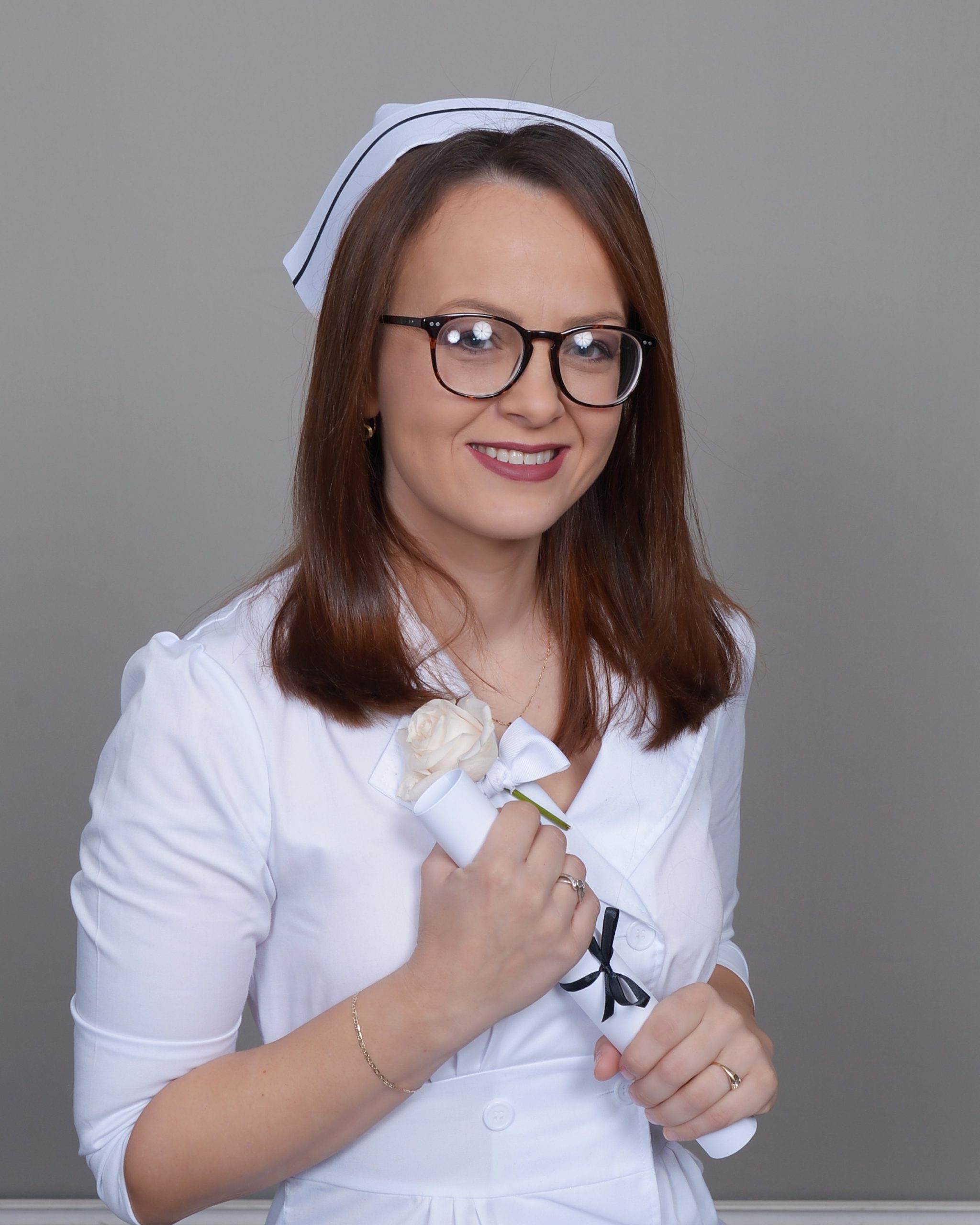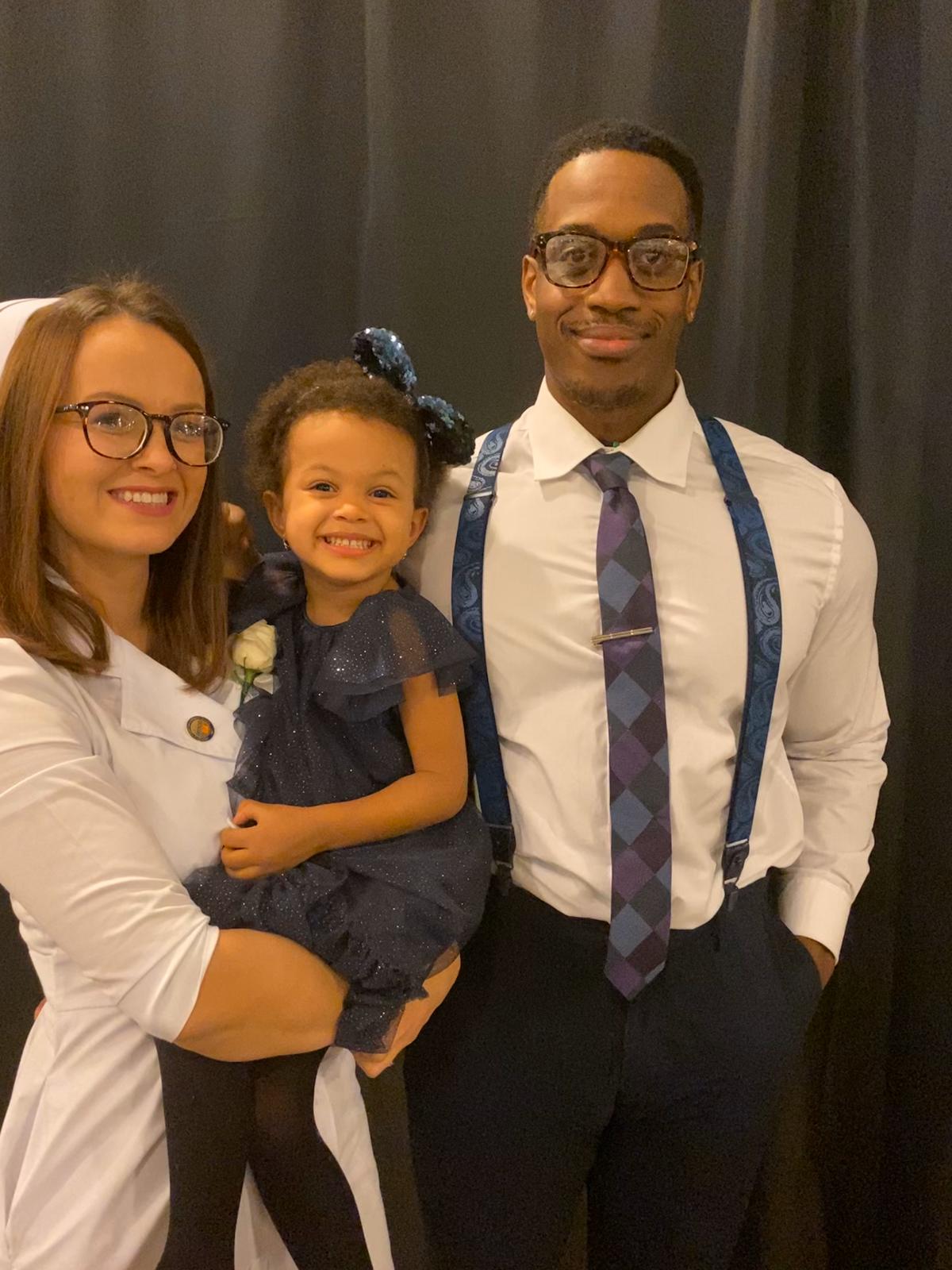April 22, 2020
Imagine graduating with your associate degree in nursing, just as a global pandemic is ramping up in your city. Now imagine falling ill to the virus causing that pandemic – and still managing to pass the rigorous National Council Licensure Examination (NCLEX) for Registered Nurses on the heels of your recovery.
This is what happened to Irena Butcher, who graduated with her Associate in Applied Science Degree (A.A.S.) in Nursing from Borough of Manhattan Community College (BMCC/CUNY) in January 2020.
“We were waiting for our paperwork to be sent to the state, to register us for the NCLEX and then everything shut down, there were no more exams,” Butcher says. “Our appointments had to be rescheduled three times and each time, we made a lot of phone calls to the governor’s office, saying, ‘There is a shortage of nurses, please let us get our license instead of importing nurses from all over the country.’”
 During that time, she was in quarantine with her three-year-old daughter, her partner and his parents at the family’s home in Orange, Connecticut — then the virus hit.
During that time, she was in quarantine with her three-year-old daughter, her partner and his parents at the family’s home in Orange, Connecticut — then the virus hit.
“I believe my daughter got it first,” Butcher says. “She came down with a fever and cough that lasted two days and then she was fine, so we assume it was a very mild case.”
After that, all four adults came down with COVID-19 on the same day, Butcher says.
“It started as a flu; body aches, fever, no respiratory distress in the beginning. A couple days later it got better, then it quickly got worse with coughing and trouble breathing. The body aches came back, and we had a lack of taste and smell, all the classic symptoms.”
This window of time was Butcher’s last chance to brush up on her knowledge and skills for the NCLEX, but she was in no shape to study.
“I was so weak, I couldn’t lift my arms,” she says. “I didn’t eat. I was in pain, and medication didn’t help. Tylenol helps with the fever but it doesn’t affect the aches. I was sleeping 20 hours a day. The chills never stopped. No matter how many blankets, you are shaking from cold.”
Fortunately, the house was well stocked with non-perishable food and Butcher, her partner and his parents were able to nurse each other back to health — even as they took care of Butcher’s three-year-old daughter.
“She was surprisingly understanding,” Butcher says. “The only time she came to me was when she was hungry and I would make some easy food for her and go back to sleep.”
This all happened in the beginning of March, and Butcher took the NCLEX on April 10.
“I only had a couple weeks to study and I could have used more time but I relied on what I had learned as a nursing major,” she says. “I knew my best chance to pass the exam was to take it no more than three to four months after graduating, so I didn’t want to delay till the summer.”
 Her appointment was at a testing center in Brooklyn.
Her appointment was at a testing center in Brooklyn.
“They allowed no more than 10 people in the room and took all sorts of precautions,” she says. “We had to wear masks and gloves to enter the room, we had to clean our hands before they fingerprinted us and they wiped down the desks with disinfectant as we took our seats.”
In the past, the NCLEX allowed up to six hours for completion of the test and provides a maximum of 265 questions, Butcher says, but those requirements were altered in light of the COVID-19 outbreak.
“Instead of six hours they gave us four hours to finish the test, and we could take up to 160 questions or as few as 60, if the computer determines your answers are correct.”
With an edge of amazement in her voice she adds, “I ended up at 60.”
Now Butcher is waiting for her license number to post on the NCLEX site. “Then I can apply for perdium work because full-time work is not available in the areas in which I want to start my career.”
She explains that traditionally, new nurses in hospitals are placed in a preceptorship for six months, shadowing a more experienced nurse before they are cleared to work independently with patients.
“I would rather take a perdium job in a testing site or a quarantine facility, than go straight into a hospital during a pandemic without that kind of supervision,” she says. “Also, that leaves more slots for more experienced nurses. Later, I would like to find a job in a hospital with a preceptorship and go from there.”
Even given the stressful start to her career, Butcher’s commitment to nursing remains strong.
“I still want to be a nurse, more than ever,” she says. “I feel like having recovered from COVID, I have a lot to give. I understand how people with the virus feel, how scary it is. Also I am no longer at high risk for contracting COVID, so I feel like I can be closer to the patients. People are dying. There is a shortage of nurses. I would like to go out there and work.”
Her long-term plan is to eventually apply to an online bachelor’s degree program in nursing.
“The School of Professional Studies at CUNY is my top choice,” she says. “They have a fully online bachelor’s degree in nursing that I’m interested in.”
Looking ahead gives her strength in the present, she says. “I miss New York City as it used to be, all the playgrounds, all the museums. I can’t wait for life to be what it was again.”
STORY HIGHLIGHTS
- Irena Butcher graduated BMCC with an A.A.S. in Nursing and attended her pinning ceremony in January 2020
- In March, she contracted COVID-19 along with the four members of her family
- On April 10, just two weeks after her recovery, she took and passed the rigorous NYCLEX for a Registered Nurse (RN) license

